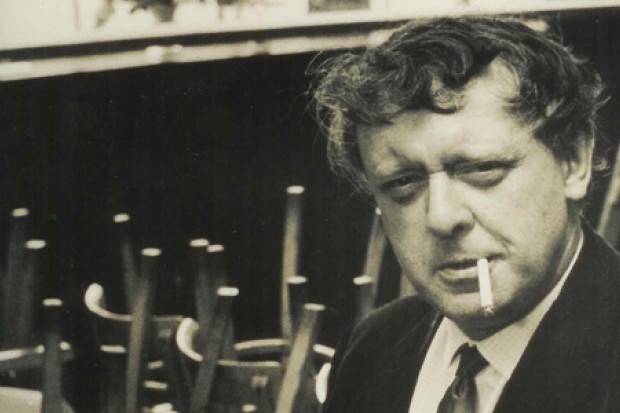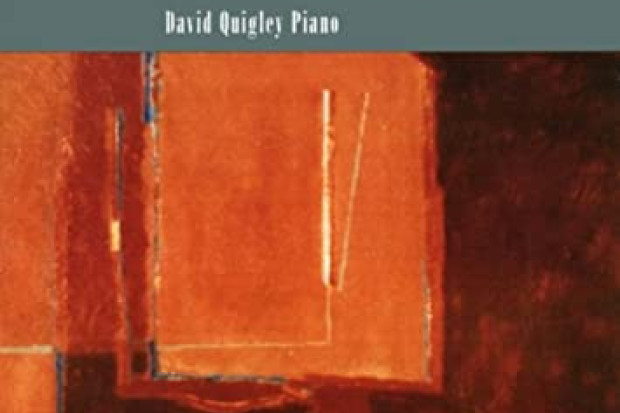
Ireland’s most recent international music success: Hozier.
The Truth About Ireland’s Music Business
As I stepped onto the podium at the Dalkey Book Festival, there was one question I knew somebody would ask. A crowd had gathered to hear about my book, Cowboys and Indies – The Epic History of the Record Industry, but I sensed many had come for answers about their own struggles. Many of the older faces knew my father, a pioneer promoter in Dublin’s nascent rock scene in the 70s. The middle-aged ones knew I’d emigrated in the mid-90s to the electronic music scene in Paris where I’ve lived for 20 years. Part outsider, part insider, if anyone ought to have a view on Ireland’s music business, I should. And sure enough, the question eventually came: ‘Why is it so hard to make a living from music in Ireland?’
Wealth creation in music, irrespective of country or genre, is about finding, signing and developing raw talent, bringing it to international audiences, then recycling the profits back into the next crop. This work – that of the record label – is extremely risky and difficult, yet it is only through generating internationally valuable copyright that music can earn the large sums needed to simultaneously reward success and invest in newcomers. Culturally, breaking new artists and genres is also how we can fight the scourge of granddad rockers and disposable teen pop. Undoubtedly, even in this brave new world of streaming and surreal ticket prices, record production remains the heartbeat of the whole musical organism. Concert promoters, radio DJs, journalists, TV producers, advertisers, and the public as a whole, can only choose from what’s on offer, and they want quality content – endless amounts of it.
To see how this is achieved, look at Britain and how much its rich musical culture owes to a handful of entrepreneur producers. In the 1920s and 30s, the co-founder of EMI, Sir Louis Sterling, reinvested millions made from operatic hit records into jazz labels, the Abbey Road studios and Britain’s nascent radio and television industries. A subsequent EMI chairman, Sir Joseph Lockwood, bought the Los Angeles major label Capitol in 1955, then promoted a young George Martin to revitalise EMI’s ailing Parlophone label. With the gargantuan profits pouring back from Beatles sales in America, Lockwood later bought Thames Television and other television production studios.
Contrary to what we might imagine, the BBC was hugely influenced by its older cousin, the music industry. But the support was mutual. When pirate radio was outlawed in 1967, the BBC launched Radio 1, poaching a swathe of counter-culture DJs from the North Sea ships, including John Peel, who in turn gave a platform to Britain’s new generation of labels – Island, Chrysalis, Charisma, Virgin and many others.
Over a century, Britain developed a synergy between music and media that has continued to this day with, for example, the Beggars Group, Britain’s new powerhouse collective of genre-breaking indies such as XL Recordings, 4AD, Matador and Rough Trade.
Ireland has never had these kinds of world-conquering labels, nor the musically literate entrepreneurs who have driven them. Since John McCormack, its best musicians have gravitated to London to find a record deal. But where has this musical brain drain left Ireland economically? The globally successful repertoire we think is Irish is actually copyright owned by foreign record labels who pay about a quarter of the revenues back to the artist. In the absence of labels, the unusual skyline of Dublin’s music business, since about the late seventies, has been dominated by concert promoters, millionaire pop stars and various accountants and publishers. Even the PR agencies dotted around Dublin have evolved as import models, handling local publicity for foreign labels. As a result, Irish musicians and managers have a skewed idea of what the music business is and should be.
There is, however, one remarkable Irish exception proving the pivotal importance of production. Rubyworks is a Dún Laoghaire label currently surfing Ireland’s biggest commercial success in many years: Bray singer Hozier whose ‘Take Me To Church’ has topped the charts throughout the world, registering over 300 million views on YouTube. By May 2015, it had achieved five certified RIAA platinum discs, i.e. five million sales in America alone. Not only did Ireland’s Rob Kirwan produce Hozier, but Rubyworks has retained copyright, only licensing the American and European rights to major labels Columbia and Island. The label is run by its founder Niall Muckian who previously discovered and released Rodrigo y Gabriela, but two of its co-directors are Denis Desmond and Caroline Downey, owners of Ireland’s biggest concert promoter, MCD, and one of the biggest promoters in the world. Downey is also Hozier’s manager.
The elusive craft of A&R will always decide success or failure in record production, but having MCD’s owners as directors must make long-term survival more feasible. Banks will never lend to labels, which, as a rule, lose money on most signatures and probably just break even most years. Musically experienced moguls will always provide the best support in this subtle and unusually risky business, but smarter micro-economic management can also sow the seeds of growth for the whole marketplace of producers, labels and even broadcasters.
One approach, for example, would be to consider copying the semi-state film financing system from my adopted home of France. The CNC (Centre National de Cinema et de L’Image Animée), France’s film board, which invests €550 million per year in film and TV production, raises its treasure chest directly from micro taxes in the audio-visual sector, namely TV commercials, box office receipts, and various online taxes.
Its genius is that it is the very broadcasters and film distributors who pay these taxes that need world-class content to survive. As such, producers who receive CNC investment are under huge pressure to supply brilliant films back to the same entities. Precious resources and opportunities are thus kept circulating between interdependent parts of an industrial organism, fostering a culture of community, discipline and national ambition. The results speak for themselves: France is, by far, the number one exporter of films in Europe.
Looking at both France and Britain, it comes back to the quality of patronage, both public and private, and the synergy between local producers who create the content and the broadcasters and now tech firms who need it. Unfortunately, on both counts, and despite the talent available (and the recent exception of Rubyworks), these are the weaknesses in Ireland’s music scene. Ireland doesn’t have a music industry in the real sense, but rather the musical equivalent of a comptoir, the colonial term for a trading post that facilitates the outflow of raw materials to foreign factories and the import of products back in. The hundreds of millions flowing through Ireland in the form of pop-star royalties isn’t benefiting the indigenous music community, because in Ireland, unlike in Britain, there’s no code of honour that music-generated wealth should be re-invested back into music production. Nor, unlike in France, is there a micro tax and investment system generating world-class copyright. Struggling on both sides, Ireland is left with a distinctly medieval social pyramid of absentee rock lords and starving buskers, and no musical middle-class in between.
Published on 27 July 2015
Gareth Murphy is author of Cowboys and Indies – The Epic History of the Record Industry. For his music business articles in the UK press, he won Writer of the Year at the 2017 PPA Independent Publisher Awards. He ghostwrote Siren Song, Sire Records founder Seymour Stein’s official autobiography, and lives in Paris.

















